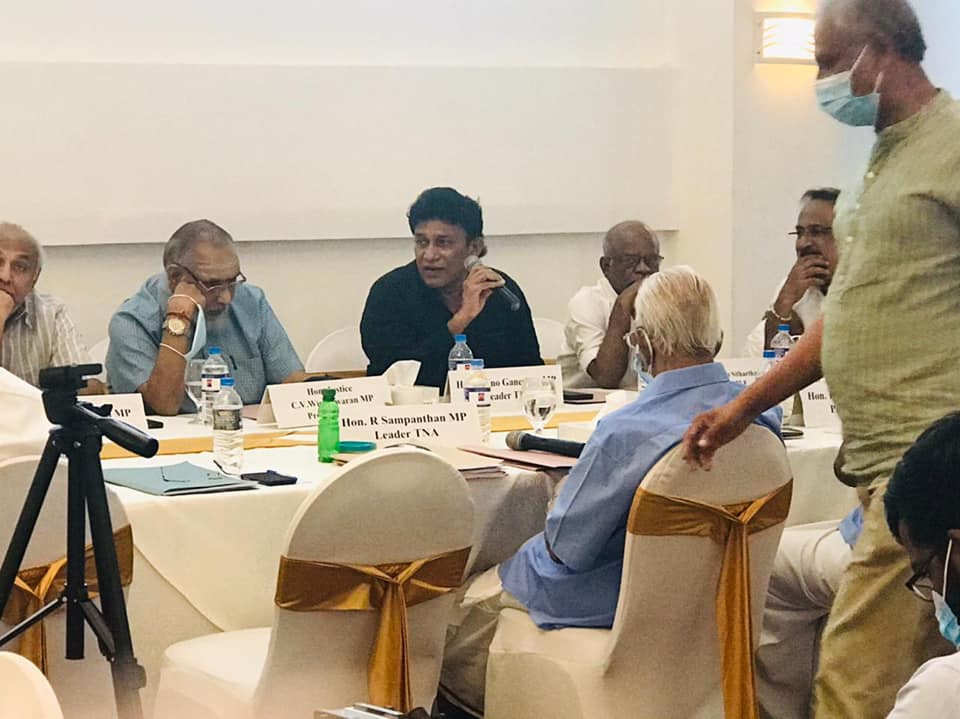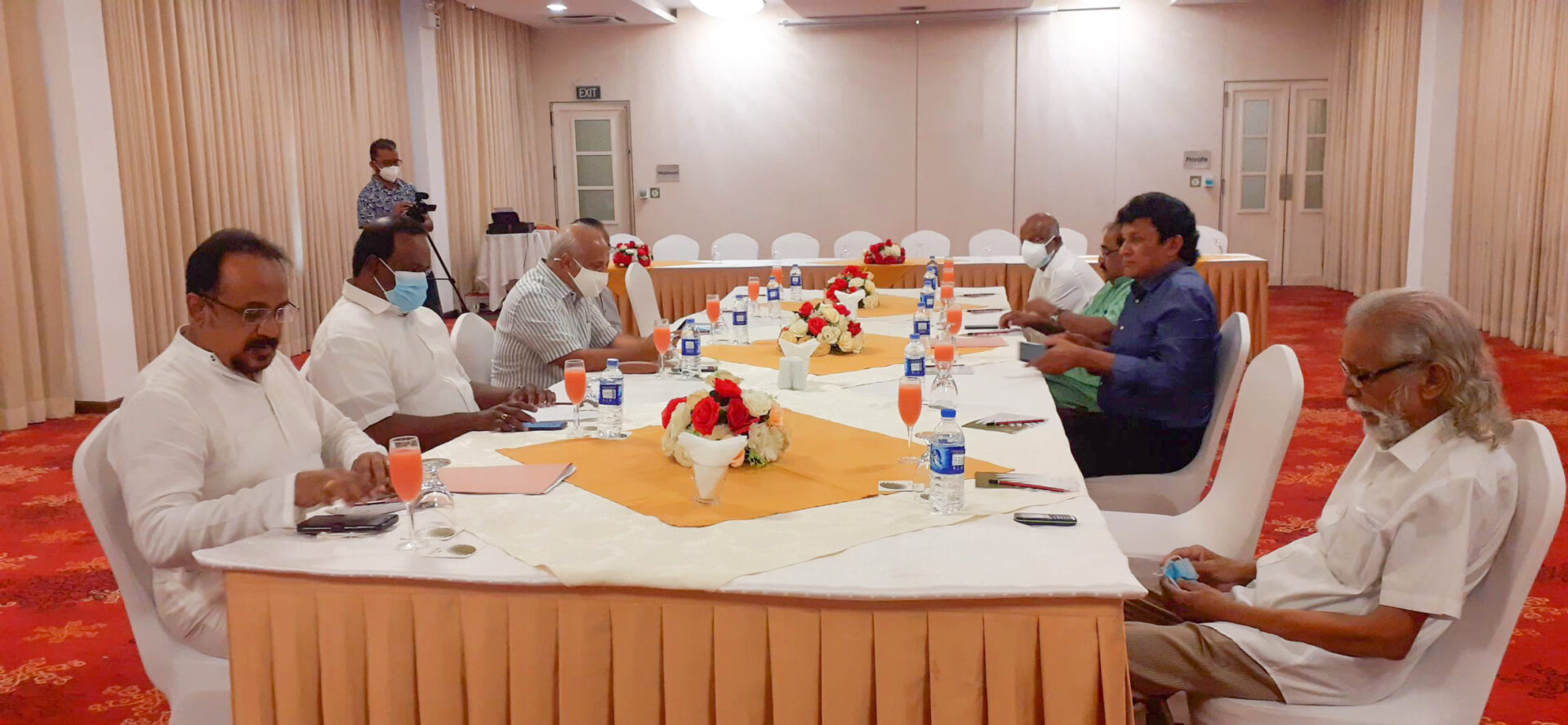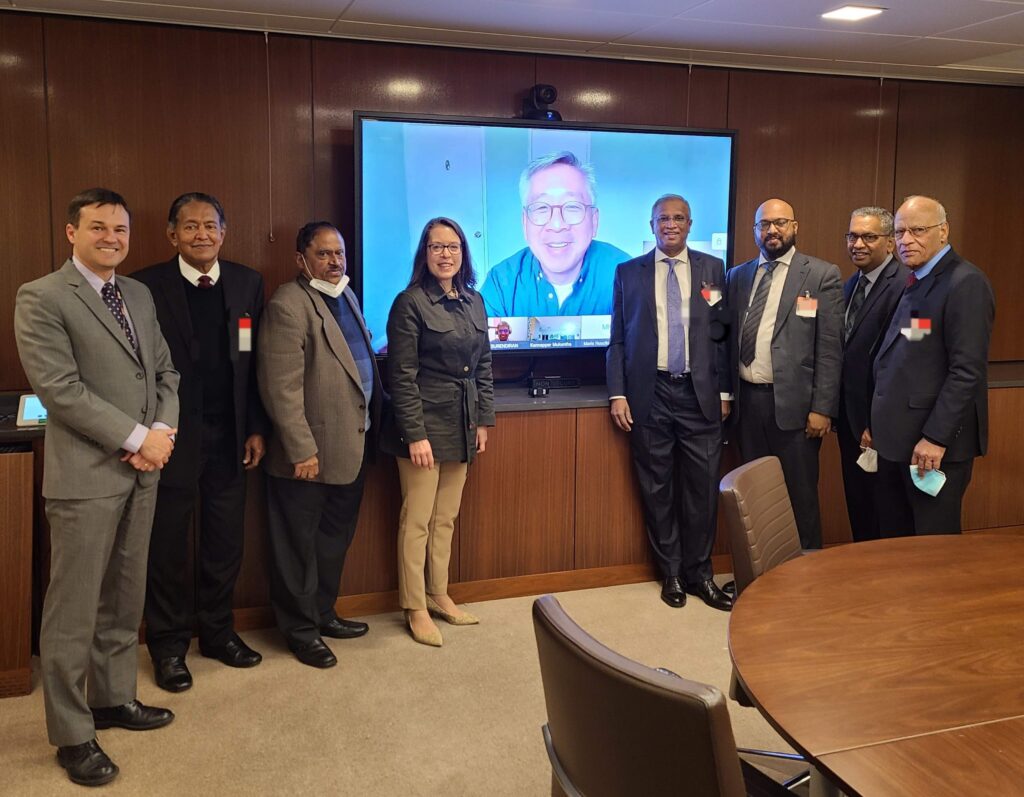by Nillanthan on his blog, January 1, 2022
[translated from the Tamil by Google Translate with some edits]


What awaits in a new political year? Or what to do? The decision can be a continuation of the last year, so the new year can be planned based on a compiled estimate of the previous year.
There have been three major moves in Tamil politics over the past year. Notably, a concerted effort has been made in recent months with the aim of putting forward a joint demand towards India.
Although there have been many other changes in Tamil politics over the past year, there is reason to pay particular attention to these three moves. These three measures are first and foremost efforts to unite the parties, and secondly to begin foreign affairs initiatives.
Political scholars say that the ethnic issue is, in essence, an international problem. There is an international solution to it… That is, the Tamil people need a foreign policy and an external framework. On this basis we can look at all three foreign affairs activities in some depth.
The first attempt was made by Sivakaran, the leader of the Tamil National Right to Life Movement in Mannar. A letter was sent to the three parties on January 21, along with other civil society representatives. This is an important directory that has emerged in the last 12 years. The letter had a very clear position that the issue of the Tamil people should be taken outside the Human Rights Council. It was decided to send two more letters in the wake of the first letter. The letter did not spark real action. This is the first attempt.
The second attempt was a letter sent by five parties following the Geneva conference last September. The TELO movement spearheaded this unification effort. The TNA did not support it. The Tamil National People’s Front did not join it.
The third attempt is now underway, to put forward a joint demand towards India. This too is being carried out by the TELO movement. This is the next phase of the previous co-ordination effort. However, they later cooperated. In the meantime, Sumanthiran-led group went to the United States. These co-ordination efforts were not fully successful until the day this article was written.
Tamil people can learn the following by summarizing the above three activities.

The first lesson of the three integration efforts was due to the fact that the TNA federation lost its monopoly in the last parliamentary election and the alternative team won three seats. Mavai Senathirajah first appeared in an attempt to consolidate the parties to strengthen his position within the party. The leadership of the federation did not like it. So those efforts stalled. Is considered to have increased. This is the first reason. Another reason is that the partner parties within the federation continue to be insulted and seek to assert their supremacy. The third reason is Kurusami Surendran, TELO’s spokesman.
The second lesson learned is that despite the federation losing its monopoly, the alternative faction has failed to emerge as a cohesive force. This fact is clearly stated in the first paragraph of an unofficial document that the TNA sent in a separate letter to Geneva during the Geneva meeting last September. That letter notes that they are the Tamil party to win the most seats in parliament.
That is the practice of foreign affairs. In politics, external affairs are the relationship between two centers of power. Foreign governments and corporations can only “engage” with a party that has won a relatively large majority of votes through domestic elections. Foreign ambassadors also refer to parties that are considered to be the center of power in the country or to parties that they consider to be civilian forces that can in some way influence power. That is a basic rule in foreign affairs. External parties will have relations only with a party that has won a majority of the people through elections. This is the basis on which the TNA is running. The alternative team that thinks that geopolitics and geopolitics should be handled more loyally and efficiently by the people who voted than by the TNA should get the people’s mandate to do so. Foreign affairs is not idealism. It is not a fantasy. It is a recipe. It starts with gaining political power. This is the second.
The third lesson learned is that despite the above three coordination efforts, there is no real coordination between the collective demands. There was no continuity or coordination between the letters sent to the two Geneva meetings that took place in the same year.
Only through coordination efforts by civil society can all parties be brought to a minimum of pragmatic co-ordination. But civil society lacks the resources and strength to make it a full-time job. That is, civil societies are not a strong center of power. The conditions have not developed enough for the Tamil parties to listen to what they have to say. And there is no people’s movement that can lead the politics of representation of the Tamil people.
So we can come to the most brilliant conclusions based on the lessons learned above. All four foreign policy approaches over the past year have shown us that electoral defeats and the loss of monopolies are the root cause of the above co-ordination efforts. On that basis coordination efforts should not be the result of inter-party competition or individual runs or cross-sections. It should not be done only by the parties. An External Affairs Committee should be formed to unite all parties such as the people’s representatives, experts and civil society activists.
So, in summary, three concerted moves have been made in the past year regarding the external attitudes of the Tamil people.